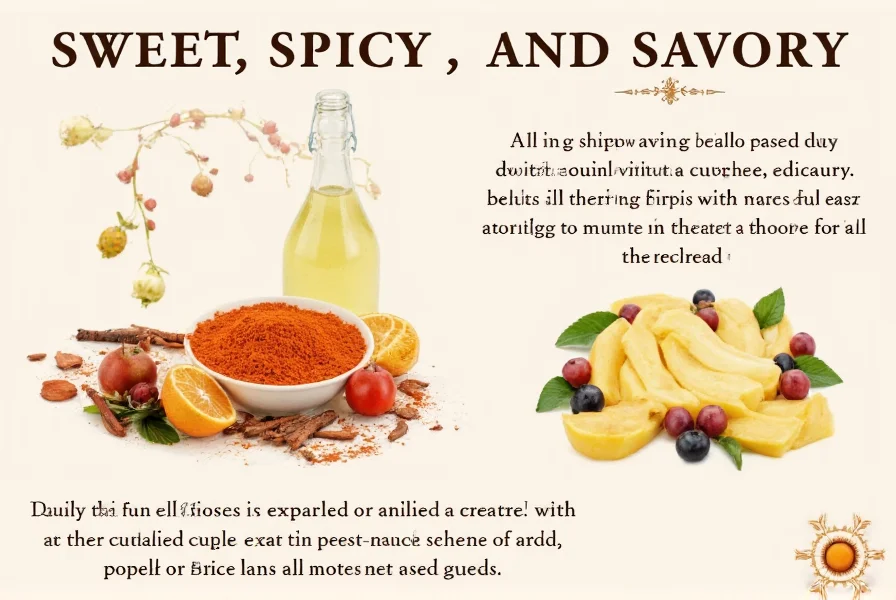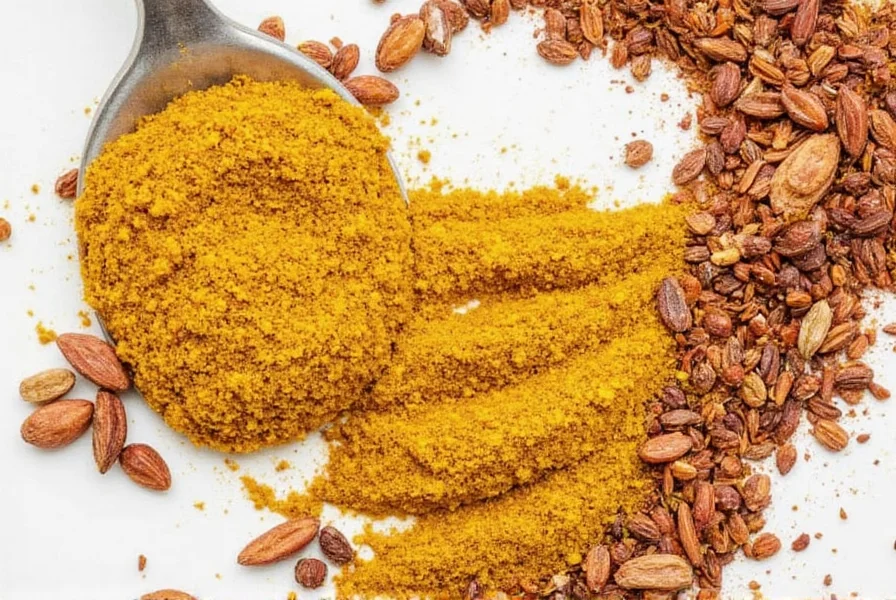Table of Contents
Introduction to Seasoning on Fruit
When you think about seasoning, you might imagine salt, pepper, or a classic spice blend. But what if we told you that some of the most exciting flavor combinations come from seasoning on fruit? From tangy mangoes sprinkled with chili powder to sweet strawberries drizzled with cinnamon, the world of fruit seasoning is a deliciously underappreciated realm.
Seasoning on fruit isn’t just a trend—it’s an art form. It adds depth, complexity, and a twist of surprise to familiar flavors. Whether you're a seasoned chef or a curious home cook, experimenting with seasonings on fruit can open up new culinary horizons. In this guide, we’ll explore the basics, share practical tips, and dive into the science behind why certain spices pair so well with fruits.
Practical Tips for Seasoning on Fruit
Ready to elevate your fruit game? Here are some simple yet effective tips to get started:
- Start with a small amount: A little goes a long way. Sprinkle a pinch of spice and taste before adding more.
- Use fresh spices: Ground spices lose potency over time, so always go for freshly ground or whole spices when possible.
- Pair based on flavor profile: Sweet fruits like pineapple or banana work well with warm spices like cinnamon or nutmeg, while tart fruits like citrus or kiwi pair beautifully with mint or chili.
- Experiment with textures: Crushed nuts, seeds, or even edible flowers can add a delightful crunch or visual appeal.
- Try different techniques: You can sprinkle, brush, or even bake seasonings into fruit dishes for varied results.
One of the best ways to start is by trying out seasonal fruits with classic spice pairings. For example, try tossing sliced apples with a dash of cumin and a sprinkle of sea salt for a unique twist on apple pie. Or mix ripe bananas with a bit of smoked paprika and a drizzle of honey for a savory-sweet snack.
In-Depth Exploration of Flavor Pairings
Understanding how different spices interact with various fruits is key to mastering the art of seasoning on fruit. Let’s break it down by fruit type and spice pairing:
| Fruit | Recommended Spices | Flavor Profile |
|---|---|---|
| Strawberry | Cinnamon, Cardamom, Vanilla | Earthy, warm, and sweet |
| Mango | Chili Powder, Cumin, Turmeric | Spicy, earthy, and slightly smoky |
| Pineapple | Cinnamon, Clove, Nutmeg | Warm, aromatic, and sweet |
| Kiwi | Mint, Cilantro, Lime Zest | Citrusy, refreshing, and herbal |
| Banana | Smoked Paprika, Cinnamon, Cocoa | Savory, sweet, and rich |

The magic happens when you combine the natural sweetness or acidity of the fruit with the warmth, heat, or bitterness of the spice. For instance, the sharpness of lime complements the mellow sweetness of a ripe mango, while the smokiness of paprika brings out the caramelized notes in a baked banana.
Another fun experiment is using spices to enhance the natural aromas of fruit. Try adding a few drops of orange blossom water to sliced peaches, or dusting pears with a mix of nutmeg and brown sugar for a cozy dessert. The possibilities are endless!
Buying Guide: Tools and Ingredients for Seasoning on Fruit
If you're serious about seasoning on fruit, having the right tools and ingredients can make all the difference. Here's a detailed buying guide to help you stock your kitchen:
Essential Spices for Fruit Seasoning
- Cinnamon: Adds warmth and sweetness. Great for apples, pears, and bananas.
- Nutmeg: Offers a nutty, spicy aroma. Perfect for baked fruits and desserts.
- Cumin: Provides an earthy, slightly smoky flavor. Ideal for tropical fruits like mango and pineapple.
- Cardamom: Adds a floral and citrusy note. Works well with berries and stone fruits.
- Chili Powder: Brings heat and depth. Excellent for mango salsa or spiced fruit skewers.

Tools to Enhance Your Seasoning Experience
- Grinder: A good spice grinder ensures you get the freshest, most potent spice powders.
- Measuring Spoons: Accurate measurements are crucial for achieving the perfect balance of flavors.
- Mini Spray Bottles: Ideal for applying infused oils or liquid seasonings evenly on fruit slices.
- Wooden Spatula: Perfect for mixing and folding spices into fruit-based recipes.
Recommended Products for Seasoning on Fruit
| Product | Features | Best For | Occasions |
|---|---|---|---|
| Herb & Spice Grinder | Stainless steel blades, compact design | Homemade spice blends | Kitchen experiments, gifting |
| Wooden Spice Spoon Set | Hand-carved, eco-friendly | Dosing spices accurately | Home cooking, baking |
| Mini Mason Jar Set | Reusable, glass jars with lids | Storing homemade spice mixes | Crafting gifts, pantry organization |
| Infused Oil Spray Bottle | Adjustable nozzle, leak-proof | Applying flavored oils to fruit | Salads, snacks, charcuterie boards |
For those looking to take their seasoning on fruit to the next level, consider investing in high-quality, ethically sourced spices. Brands like Penzeys Spices or McCormick offer a wide variety of single-origin spices that can transform your fruit dishes into something truly special.
Conclusion
Seasoning on fruit is more than just a quirky food trend—it’s a creative and flavorful way to explore the intersection of sweet, spicy, and savory. Whether you're using a pinch of cinnamon on your morning oatmeal or crafting a vibrant fruit salad with a kick, the possibilities are as vast as your imagination.

So, the next time you reach for a piece of fruit, don’t just eat it—season it. Experiment with different combinations, embrace the unexpected, and let your taste buds guide you. After all, as the saying goes: “Life is too short for boring fruit.”
Remember, the key to great seasoning on fruit lies in balance, curiosity, and a willingness to try something new. With the right tools, a little knowledge, and a lot of creativity, you’ll be turning ordinary fruit into extraordinary flavor experiences in no time.










 浙公网安备
33010002000092号
浙公网安备
33010002000092号 浙B2-20120091-4
浙B2-20120091-4